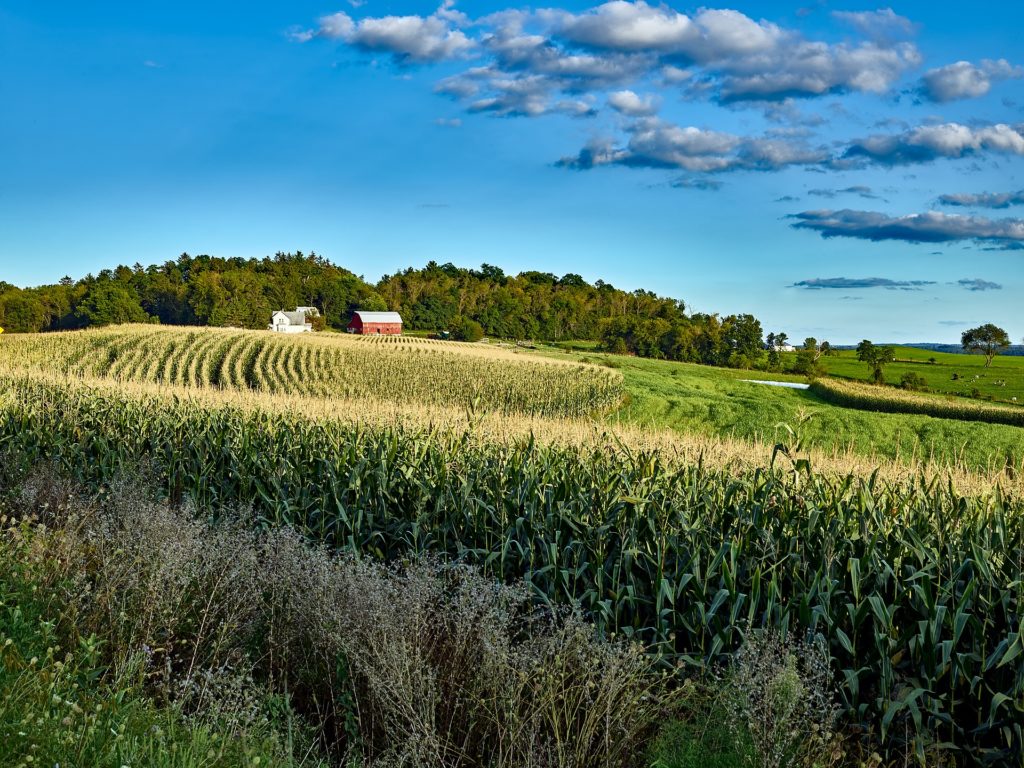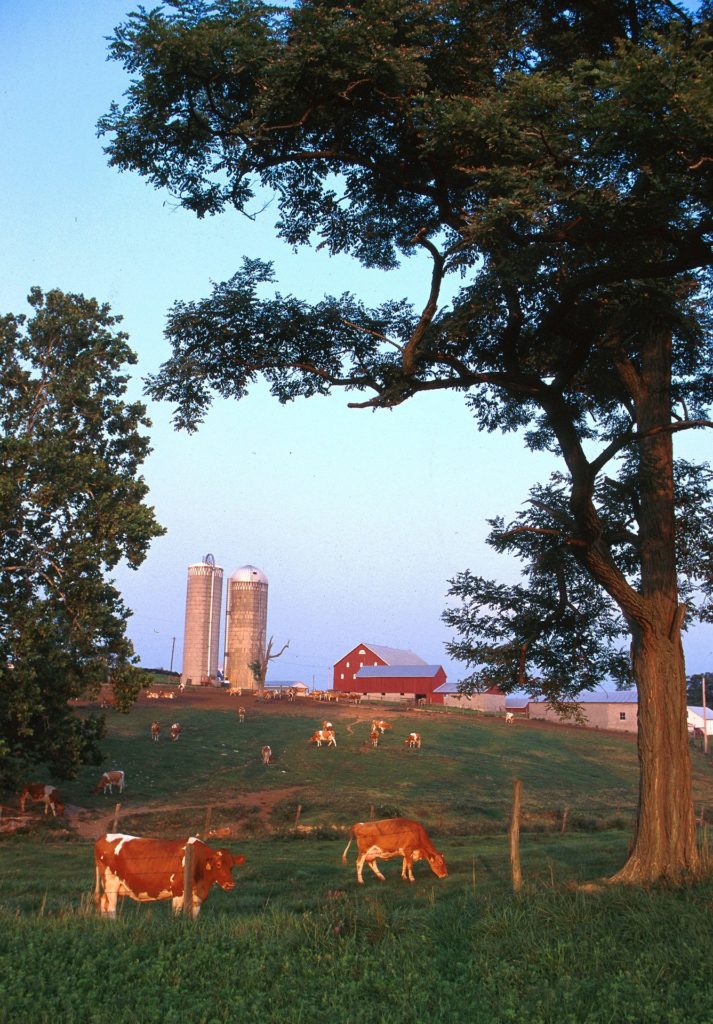How to start homesteading in Wisconsin

Wisconsin is a state of rolling hills, a climate greatly influenced by its proximity to two Great Lakes — Lake Michigan and Lake Superior — and an economy that is heavily based in agriculture. It’s the country’s number one producer of cheese, making it a great place for anyone looking to raise dairy livestock. It’s also a major player in the crafting of domestic beers, making it a good place to raise grains or hops used in the brewing process.
The state supports more than 100 farmers markets and its tourism program markets numerous visiting opportunities on working farms in Wisconsin including visits to a bison ranch, apple or berry picking, petting zoos and farms that serve up gourmet meals using locally raised ingredients.
If all of this sounds like where you see your future in homesteading, here’s how to start homesteading in Wisconsin.
Buying farmland in Wisconsin
There were 64,800 farms in Wisconsin in 2017, according to the United States Department of Agriculture. The average size of the farms was 221 acres and the total farmed acreage in 2017 was 14.3 million. The average price for farm or homestead real estate, including land and buildings, in Wisconsin was $5,200 per acre in 2017, according to the USDA, making it the most expensive among the Great Lakes region and close to 10 percent above the national average for farm real estate. The average cost per acre for cropland in 2017 was $5,200 and $2,350 for pasture.
Growing crops in Wisconsin
The average growing season in Wisconsin lasts 157 days and the state is in the USDA plant hardiness zones 3, 4, and 5. Wisconsin is number one producer in the country when it comes to growing cranberries, ginseng, snap beans for processing and corn for silage.
The state’s climate also makes it a good place to grow sweet corn, cabbage, beans, peppers, cucumbers, tomatoes, peas, pumpkins, squash, radishes, potatoes, apples, cherries and strawberries.
Raising animals in Wisconsin
Wisconsin is not a free range state, so all livestock must be kept enclosed by fencing in pasture and have adequate shelter.
It’s up to the owners of livestock to make sure all fencing is properly installed and maintained at all times to ensure animals can’t escape. If two adjoining property owners are raising livestock, they must equally share the expenses and work associated with proper fencing.
Wisconsin is home to close 1.25 million dairy cows and 7,500 dairy farms, more than any other state, according to the Wisconsin Department of Agriculture, Trade and Consumer Protection. So it’s easy to understand why the state is tops in the country when it comes to cheese production, making nearly 3.5 billion pounds of cheese in 2018, according to the Wisconsin agricultural office.

Selling food in Wisconsin
No license is required to sell raw, intact fruits or vegetables from your farm, door-to-door or at a farmers market. In Wisconsin, you can also sell these items to grocery stores or restaurants without a license. A Wisconsin law, sometimes called the “pickle bill,” allows some sales of home-canned foods without a license.
In some cases, farmers who want to sell their produce to an intermediate market may need product liability insurance. The amount and type of insurance is going to depend on several factors, including what you are selling and whether it’s to a public or private market.
The Wisconsin Department of Agriculture, Trade and Consumer Protection, division of food and recreational safety, is responsible for enforcing food regulations in the state. It’s recommended that if you want to sell and market what you grow or process on your farm that you first contact a licensing specialist at the division who can advise you on the regulations and licensing requirements specific to your products.
Wisconsin organizations for farmers
- Wisconsin Foods Program
- Wisconsin Ag Connection
- Wisconsin Farm Bureau Federation
- Ginseng Board of Wisconsin
- Midwest Organic and Sustainable Education Service
- Wisconsin Dairy Products Association
- Wisconsin Farmers Market Association
How difficult is it to start farming in Wisconsin?
The cost of farmland in Wisconsin makes it expensive to obtain and start a farming operation or homestead. But this is a state built on agriculture, from local markets to processing for nationwide shipping to agritourism. So once a farm is up and running, there are numerous opportunities to market products. The state’s department of agriculture has many programs and staff dedicated to helping new and existing farmers. The opportunities and resources for homesteaders in Wisconsin can help mitigate the price of land.
